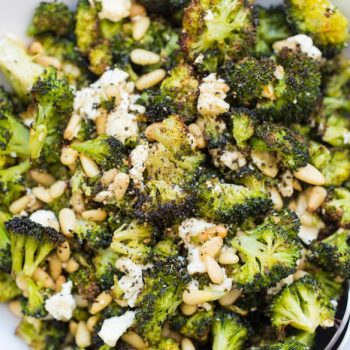You’ve all heard the saying ‘follow your heart’. You would have also been told at some point in your life that you should trust your gut (even though, like most of us, you probably let your head take control and get in its own way most of the time.
The thing is though, if your goal is to be as healthy as possible, then you should be paying attention to both of these parts of your body. And that’s because the body’s mechanism of your heart, the cardiovascular system, and your gut, the digestive system, are intrinsically connected. Why? Well, because everything in your body is linked, which is rather obvious, really. However, when it comes to the microbiome of your gut and how healthy or unhealthy it is, those same microbes can either help or cause severe damage to your heart.
For example, one study has shown that if there is bad bacteria like too much candida living in the upper digestive tract and small intestines, then atherosclerosis can become an issue. Atherosclerosis develops when the arteries are narrowed by the build up of deposits such as cholesterol, minerals and fats .This can eventually lead to a rise in blood pressure, which increases the potential of having a heart attack or stroke.
Another way bad gut bacteria affects your heart is because the chemicals that they produce increase inflammation. And you should be aware that uncontrolled chronic inflammation is not only damaging to your blood vessels, but also to the heart’s muscle and valves. If the heart doesn’t function properly, then blood will clot more easily and cause your blood pressure to spike even more.
The thing is, many of us have dealt with bad bacteria in our gut at one time or another. And that’s because things like birth control pills, recreational drugs, steroids, oestrogen replacement therapy and a poor diet are all known as common factors that contribute to an imbalance in the microbiome. This imbalance will eventually result in an overgrowth in candida fungus. In addition, if you’ve ever had chemotherapy, drink too much alcohol, take more than one course of antibiotics a year or are dealing with chronic stress, then candida can run riot in your gut, which can lead to heart problems eventually.
And it’s not just bloating and constipation that are warning symptoms of an imbalanced microbiome. An over proliferation of bad gut bacteria, candida or other organisms, can result in conditions such as:
- Anxiety
- Crohn’s Disease
- Fibromyalgia
- Non-alcoholic fatty liver disease
- Restless Leg Syndrome
- Rheumatoid arthritis
- Rosacea
- Visceral fat (on the belly)
Get The Balance Right
Keeping your gut happy is all about balance. Your gut needs both good and bad bacteria in order to function properly, but when you do things like take antibiotics or eat too many sugary foods, then this allows the bad bacteria to reproduce and take over. Instead, you want your good bacteria to thrive, in order to keep the bad guys in check. Healing an unhealthy gut microbiome isn’t an easy task, but it is a necessary one if you want to keep your heart healthy and working properly.
Doing a detox to facilitate the healing of your gut would be a good thing to do, not only to help you lay the foundations of healthy eating for life, but also to help you release some bad gut bacteria. Click here to read my blog Going Deep On Detox for more information. But if you’re not quite ready to start a detox, you can do things like add more plants to every plate that you eat. You can even include fermented vegetables like these delicious pickles. By adding fermented foods to your healthy eating regime, you will be supporting your digestive health with the restoration and maintenance of good bacteria. This causes a probiotic effect that will reach the gut, unlike many supplements that don’t make it to your intestines, due to the acids in your stomach. Organic yogurt, especially those made from coconut milk, and organic miso also contain healthy microorganisms that can help rebalance your gut microbiome.
You may also want to completely eliminate your sugar intake for a period of time — aim for 10 days, but perhaps commit to 3-4 days and see how far you can get from there. And when we say sugar, this includes lactose dairy products, all complex carbohydrates, including white rice and potatoes, and alcohol. If you commit to this, know that it’s likely you will experience a ‘crash’ after about the third day, which can cause you to feel irritable and maybe even angry. This is a normal symptom. Keep drinking plenty of clean water and perhaps take a yoga or meditation class to help you deal with these bad bacteria ‘die-off’ symptoms. I promise you’ll feel better in a day or two and have much more energy. Your skin will also look brighter and you’ll even find you will be sleeping better. And if you increase your vitamin D3 intake during the process, then it’s possible that the die-off symptoms during your detox won’t be as severe.
You now know that your digestive system plays a key role in your heart’s health, so you need the right balance for your gut flora to thrive. If you need a little supplement help, Nature’s Sunshine Black Walnut & Pumpkin Seed Intestinal Cleanse could be the answer you’ve been looking for.
CLICK HERE TO READ MORE ABOUT BLACK WALNUT & PUMPKIN SEED INTESTINAL CLEANSE
This supplement has been formulated to support healthy gut flora. Both black walnut and pumpkin seed are known for their astringent, antibacterial, antifungal and anti-inflammatory properties. These powerful ingredients are also some of the best natural sources of magnesium, which helps to regulate your blood pressure and reduce the potential for developing heart disease.
I hope you’ve enjoyed getting to the heart of the matter about your gut health. By following these simple tips, you will be well on your way to healing your gut, perhaps drop a dress size as a bonus, and keep your heart pumping happily for much longer.
Love, Gaynor x





